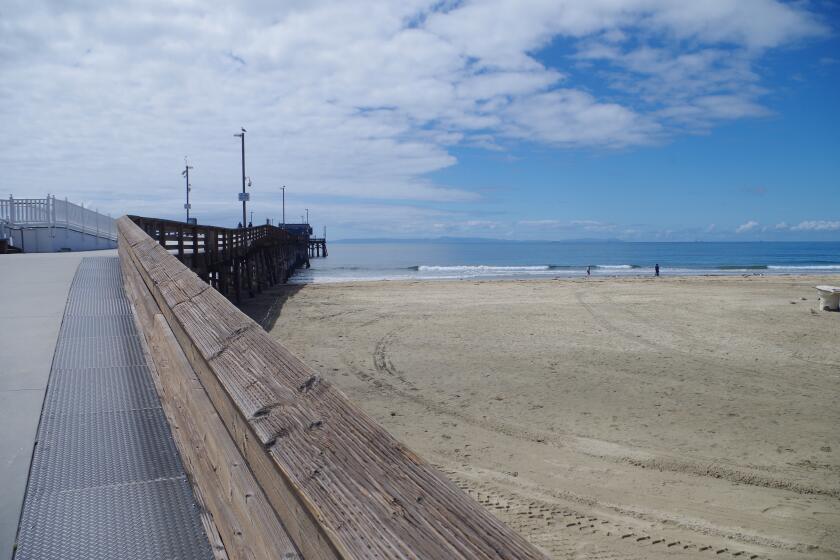Voting can be a dangerous right
- Share via
Eileen Padberg
* EDITOR’S NOTE: Eileen Padberg is a local political consultant, who
has worked on Newport-Mesa campaigns, though lately she has focused
more on nonpartisan political efforts. For the past eight months, she
has been among those helping set up the elections that took place
last month in Iraq. Her emphasis has been on getting women involved
in the process. Her letter was passed to the Pilot by Costa Mesa City
Councilwoman Katrina Foley.
The first elections in Iraq since 1958 were a huge success!
Since we now have cable television in our trailer, I was able to
watch CNN, BBC and Fox News all day. It was so exciting. I was really
moved by the many women who risked their lives to vote. It is always
worse for them. I know that you were watching the same coverage --
those smiling faces.
It brought back memories of when I was in Guatemala for its
first-ever democratic elections. They didn’t have as many choices as
the Iraqis had, and their candidates were rumored to be military coup
candidates. When I asked them why they were voting, they would always
smile and say, “Because we can.”
I was reminded by my friend Ladonna Lee this morning that she was
in Haiti for the first democratic elections. The guerrillas there
machined-gunned the place where the elections were taking place,
killing many U.S. Agency for International Development workers. But
the people were determined to vote. The voters were hiding behind
huge concrete barriers, and one at a time they would run in, all
crouched down, vote and run back behind the barriers, while the
guerrillas were shooting at them. I only wish our own citizens
thought voting was as important.
No matter what the turnout is here -- and some say it is 70% --
the elections will have been a success. Just like in the United
States, large numbers of voters chose not to vote -- that is also
their right. Those who choose to sit it out here, have little say in
the construction of their first constitution.
The insurgents threw everything at us in the last few days, trying
to scare the Iraqis away from voting. On Saturday night -- the night
before the election -- there must have been 40 mortars, explosions
and lots of gunfire. I kept trying to decide whether to put on my
vest and helmet. One mortar round hit the palace and embassy. Two
people were killed -- two people I knew, although not very well --
and many others were injured. If the mortar round had exploded, a lot
more people would have died, but it did not explode.
We were not allowed to come to the office. We closed at 4 p.m. on
Saturday and were not allowed back until today, Monday. Everyone in
charge of security here was worried that mortar fire or even a
suicide bomber would attack our building, which is a prime target.
We won’t know for another 10 to 15 days whether the mother of one
woman I’ve been working with, Esra, will win a seat. I am very
excited for her. She says it isn’t about winning -- but about running
and putting yourself out there as a candidate.
Regardless of our reasons for being here in Iraq, I want all of
you back there to know how proud I was when I watched the many people
risking their lives to vote here -- and knowing that many of the
voters were women. I was also proud when I watched as the cars took
our own Iraqi expattiates to the convention center to vote. I was not
allowed to go because of security, but I was there in spirit, as I
sent Esra off. They all came back and held up their index fingers
covered in purple ink.
I believe that yesterday’s elections brought a new sense of pride
to the Iraqis. I don’t think that the insurgents will go quietly
away, but I do think we will begin to see more Iraqis standing up for
themselves in the coming months.
Esra and I are busy working on our next conference in Kirkurk. The
travel and accommodations are incredibly challenging. No one is in
charge. I’ve already lost my temper three times this morning. We
started the process a week ago and we are not closer to securing a
place or what they call around here life support -- accommodations,
security and food.
Yet, all is well.
All the latest on Orange County from Orange County.
Get our free TimesOC newsletter.
You may occasionally receive promotional content from the Daily Pilot.



